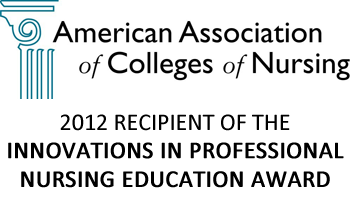PURPOSE. This study examined the phenomenon and meaning of laughing at oneself as described by the lived experiences of student nurses. BACKGROUND. Studies in older populations revealed that maturity and experience, not necessarily age, made a difference in the ability to laugh at oneself, but little research has been conducted on nursing students and the ability to laugh at oneself. A descriptive, exploratory, qualitative design and phenomenological method was used. Face-to-face interviews with nine female nursing students were recorded and transcribed. Meaning statements were identified in the language of the participants and synthesized by the researcher. RESULTS. Findings suggest that beginning nursing students bring the experience of laughing at oneself into the nursing profession and it provides them with valuable insights into the challenges facing them in a nursing career. IMPLICATIONS. Major themes were that the ability to laugh at oneself helps nursing students to maintain a balanced perspective and to not take themselves too seriously. A potential for laughing at oneself helps in keeping a balance between tragedy and comedy in life. Other implications for nursing job satisfaction and job retention are discussed.
PMID: 19954466 [PubMed - indexed for MEDLINE]


